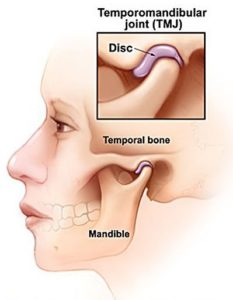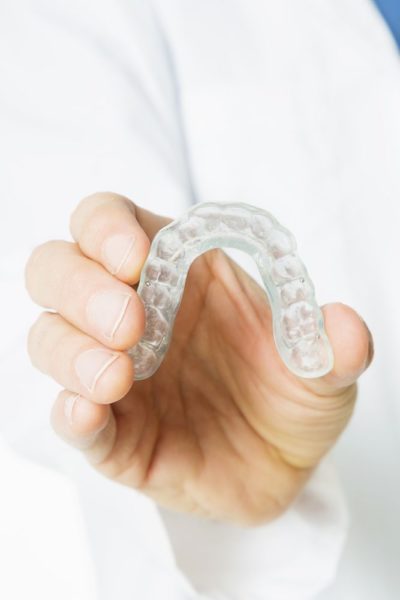Dr. Arthur A. Kezian DDS | Jaw Pain: Symptoms, Causes, and Remedies
By Arthur Kezian
What is TMJ?
Have you been experiencing jaw pain or tension in your jaw? Maybe you’ve been waking up with that pain, or maybe you feel it throughout the day? Whatever the case, you’re probably wondering why this is happening. Your teeth, nerves, muscles, and joints of your jaw work together in a specific aligned manner. While this is normal, it can change. If, for any reason, this alignment is changed, the result can be painful TMJ problems. TMJ stands for Temporomandibular joint – this connects your lower jaw (which is called the mandible) to the rest of your skull (the part called the temporal bone).

If this relationship between the different tissues in your jaw is changed in any way, some of the resulting problems can include the following:
Symptoms
- Headaches/migraines
- Jaw or facial pain
- Back, neck, or even shoulder pain
- Soreness in your teeth
- A clicking, popping, or locking of the jaw
- Popping sounds in the ears
- Earaches
- Teeth that are wearing down or even slightly cracking from the pressure of your bite

TMJ pain is becoming more and more common among patients because of a few specific causes. Some of these causes that may be causing the pain in the first place can be injury to the teeth or jaw, misalignment of them, grinding and clenching of the teeth, stress, arthritis, or even your posture.
Treatments
Home remedies:
Some cases of TMJ or jaw pain can be taken care of at home if they are mild. Some of these home remedies can be using ice packs, taking anti-inflammatory medications (e.g. Advil, Motrin, Ibuprofen), avoiding overworking the jaw muscles (e.g. not biting into big foods like burgers or apples), and even massaging the jaw in slow, circular motions. Of course all of these should be talked about with a doctor or dentist before tried at home.
Professional Care:
Although home remedies are good, sometimes other methods are required. If home remedies do not help, you can visit a dentist to get yourself a dental splint or mouth guard that will worn to protect your bite, and, as a result, relieve the tension and pressure of it. Many of the patients here at Dr. Arthur A. Kezian’s office have loved this method and have noticed a big improvement on their TMJ due to using the appliances.
There are also some other methods to help with TMJ pain which include injections or physical therapy, and sometimes for bigger cases, surgery might be an option.
If you are experiencing TMJ pain or symptoms like the ones mentioned above, then make an appointment with your dentist to evaluate your case. Don’t deal with the pain, handle it!
Dr. Arthur A. Kezian DDS 443 N. Larchmont Blvd Los Angeles, CA 90004 (323) 467-2777
